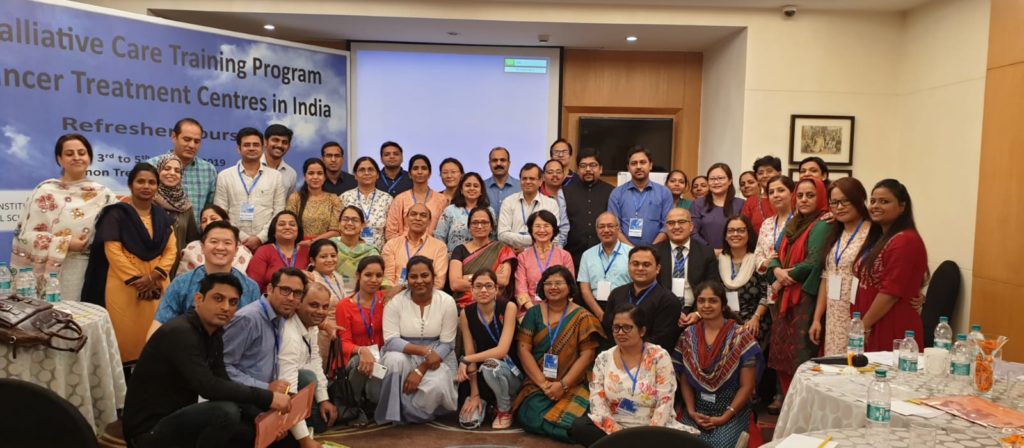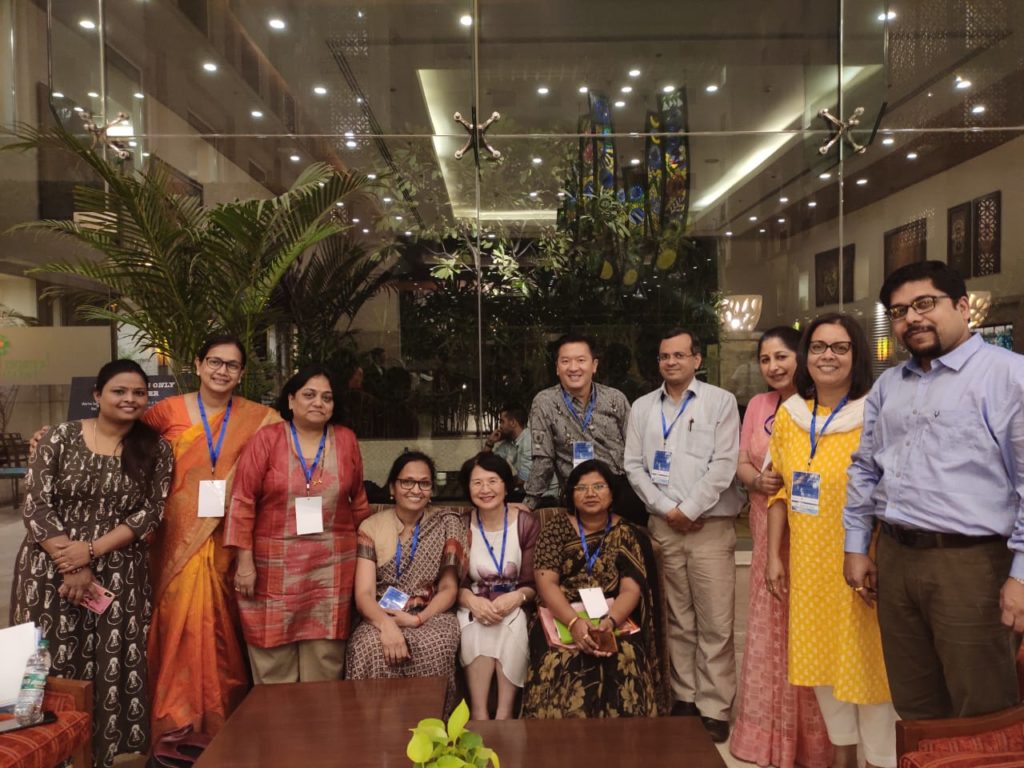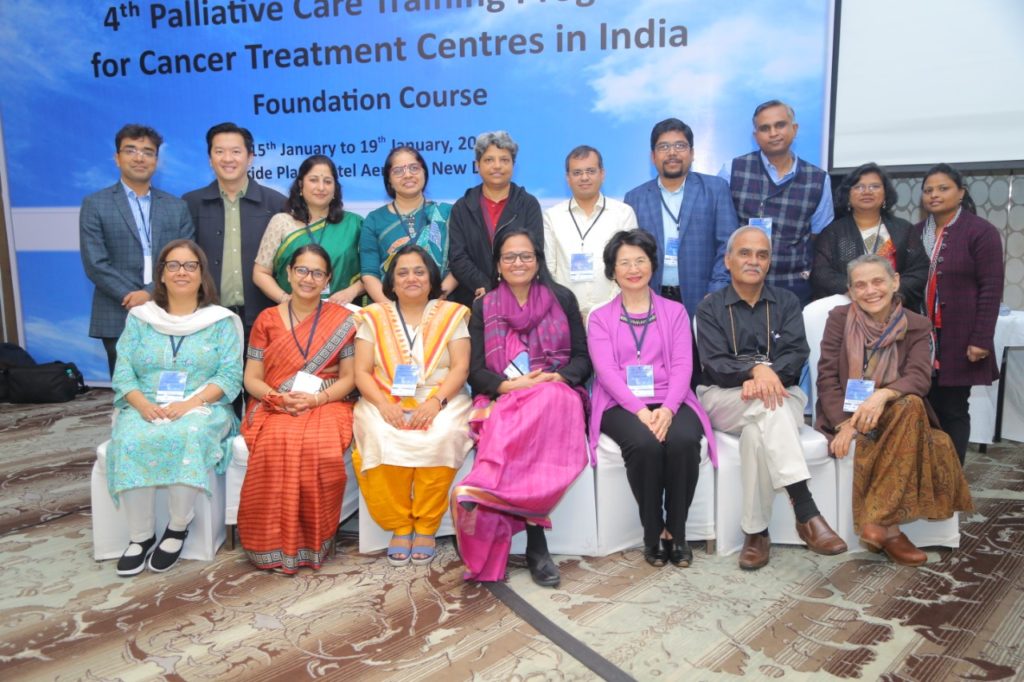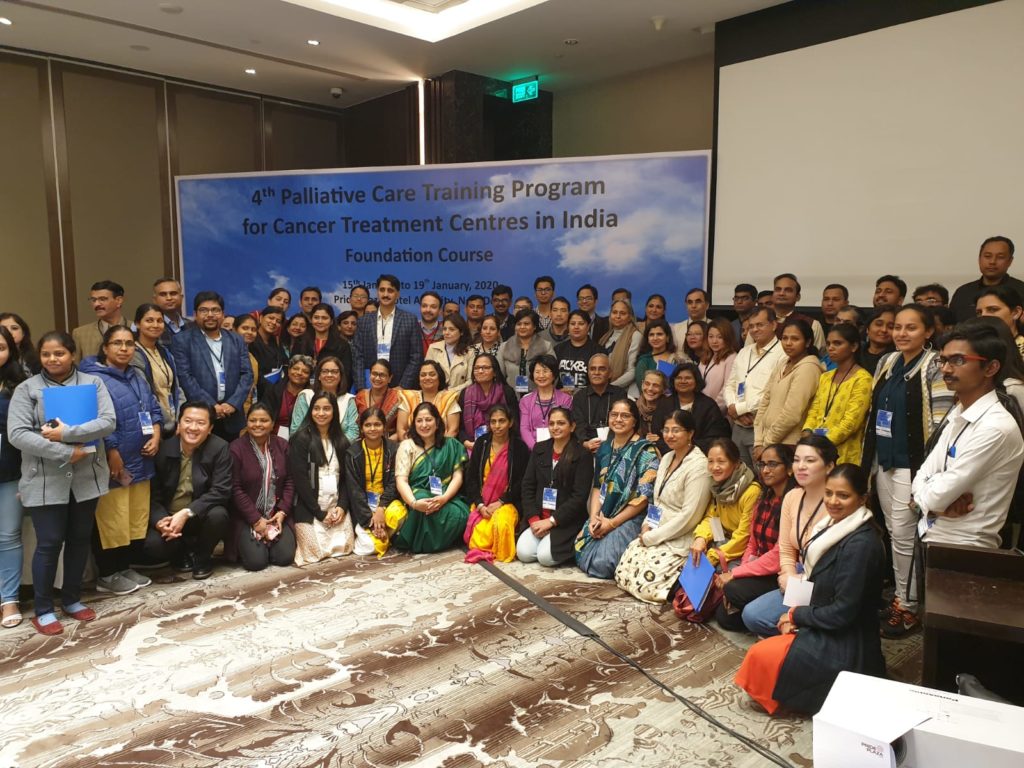
CTC 3 Refresher Course participants 
CTC3 Refresher Course Faculty 
CTC4 Foundation Course Faculty 
CTC4 Foundation Course Participants
India is the second most populous country in the world, with a population of 1.3 billion. Indian Council of Medical Research (ICMR) estimates that around 2.2 million people are living with cancer in India, with 8.8 lakh deaths every year. In addition 5.8 million (1 in 4) Indians die due to non-communicable diseases (NCDs). It is estimated that every year around 6 million Indians are in need of palliative care.
In 1990s many non-governmental organizations pioneered the growth of palliative care in the country that were primarily community driven, and home-based. Currently there are around 1000 palliative care units in India, which is accessible to less than 2% of the population. The service provision is patchy, with over 90% of these centers located in one state, Kerala. Rural India where two out of three Indians live still has limited access to palliative care and opioid medications. Despite major amendments in the Narcotic Drugs and Psychotropic Substances Act, morphine is accessible to only less than 3% of India’s population. The growth of palliative medicine in India received a fillip with its recognition as a specialty in 2012. But this was not sufficient to reach the millions of dying Indians who needed palliative care. The Quality of Death Index by Lien Foundation that measured the quality of palliative care around the world, ranked India 67th out of 80 countries in palliative care provision.
The community-led home-based model and the developing specialist-consultative model were not sufficient to cater to the growing palliative care needs of the country. The Palliative Care Training Program for Cancer Treatment Centers (CTC) aims to bridge this gap in care provision by developing the much-needed integrative model, where the existing healthcare delivery system is utilized to enhance penetration of palliative care services and morphine availability. This program, a collaborative effort of Lien Collaborative for Palliative Care, Asia Pacific Hospice and Palliative Care Network, All India Institute of Medical Sciences and Kasturba Medical College and Hospital, Manipal, was started with the objective of training primary team physicians managing patients with chronic diseases in palliative care skills and making oral morphine available in at least 100 of the 327 Cancer Treatment Centers in India.
This program was initiated in 2016 with the core objectives of a) establishing a sustainable integrative palliative care service model in Cancer Treatment Centers of India, b) ensuring uninterrupted supply of opioids, mainly morphine, in these institutes, and c) identifying and empowering palliative care champions who can teach and train other healthcare personnel at district and primary health centers. Experienced palliative care physicians and nurses from India, supported by international resource persons, form the backbone of this training program. In the last three years (CTC-1, CTC-2, CTC-3) 32 CTCs participated in the program, with establishment of palliative care services in 24 CTCs, a success rate of 75%. The fourth program, CTC-4, was conducted successfully in January 2020, in Delhi. Seventeen institutes enrolled in CTC-4 from 15 states and 2 Union Territories, with 67 healthcare professionals (physicians and nurses) being trained in palliative care.
India is a geographically vast and culturally diverse nation. Gross inequities in terms of socioeconomic status, geography, and gender continue to cripple optimal healthcare provision in the country. The National Program for Palliative Care in India though in existence since 2012 has not been implemented in-toto due to budget constraints. In this scenario, the Palliative Care Training Program for CTCs is unique in that it models how international philanthropic organizations partnering with local stakeholders and palliative care champions can bridge the gap and help in integrating palliative care into the existing healthcare system. This will go a long way in improving the palliative care environment in our country, providing the much-needed succor to millions of terminally-ill Indians.
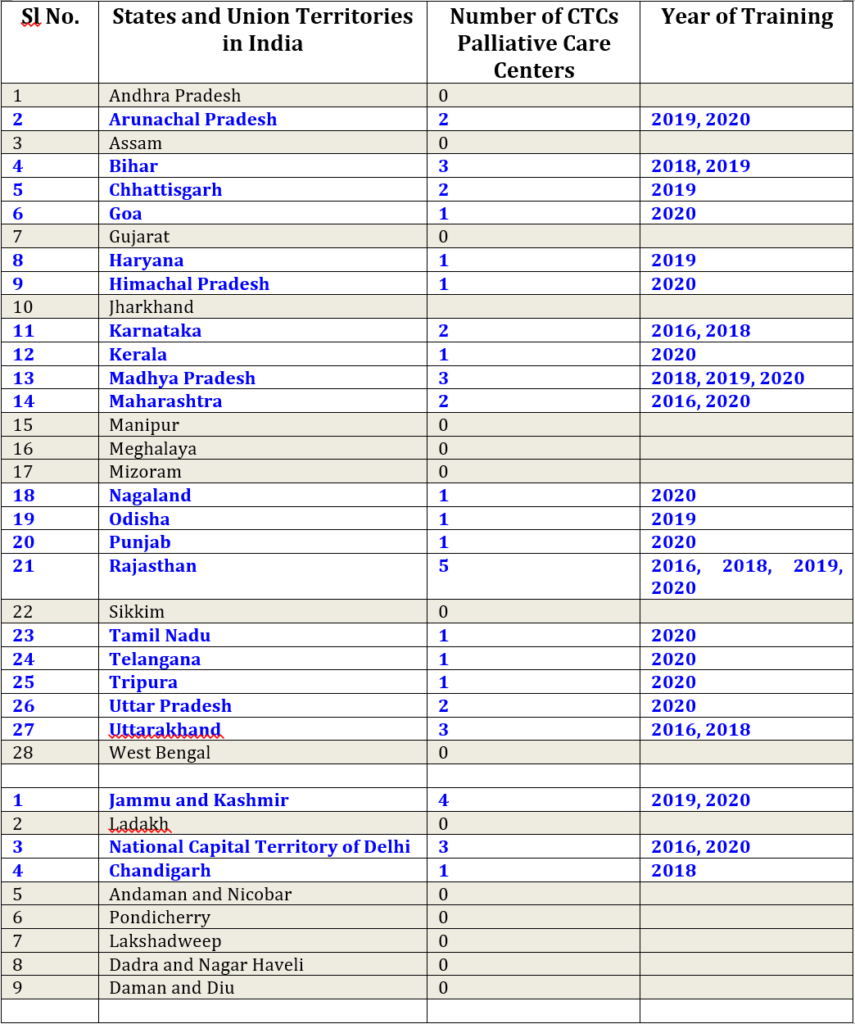
States and UTs where Palliative Care Training Program for CTCs have a presence has been highlighted in blue.
Written by: Dr Seema R. Rao (Palliative Care Consultant, Lien Collaborative for Palliative Care, APHN)

